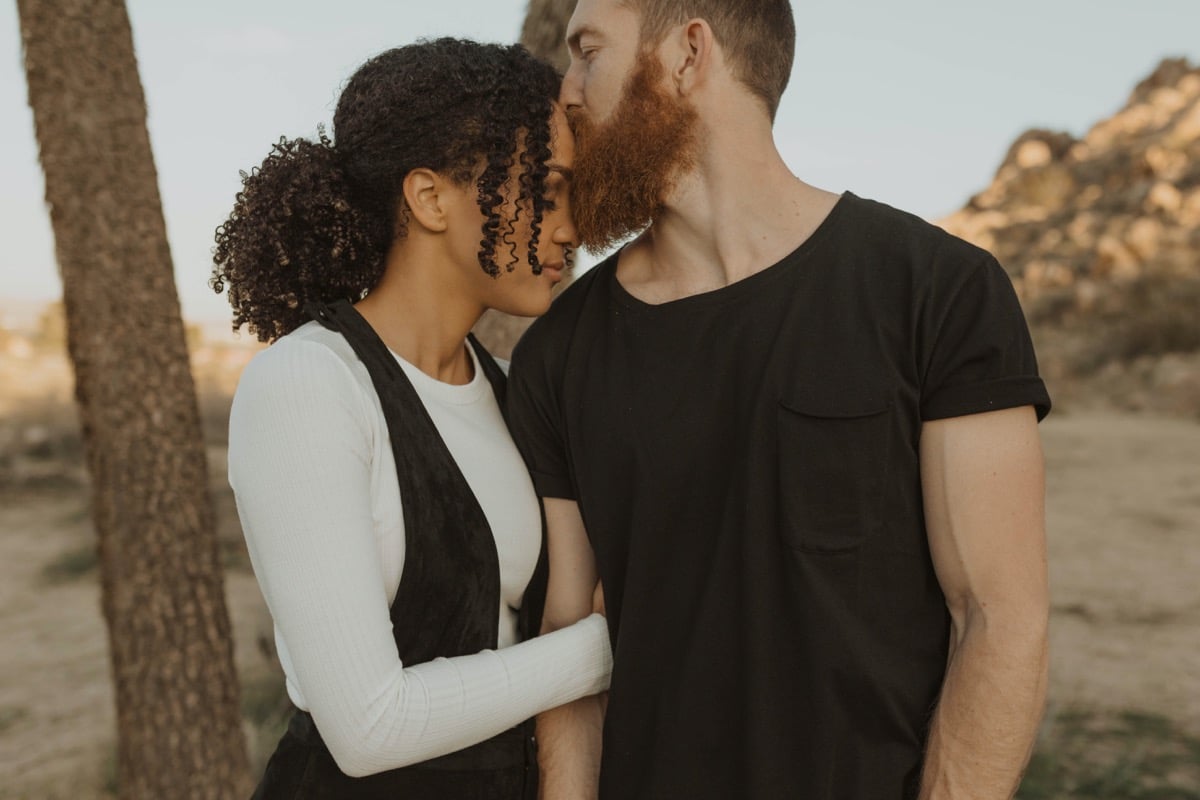
People use the word "relationship" habitually and seems to have a universal definition. In reality, the word encompasses a wide variety of types of human connection, both romantic and non-romantic, and chances are no two people share exactly the same understanding of what defines a relationship.
A relationship is any kind of association or connection between people, be it intimate, platonic, positive or negative. Usually when people talk about "being in a relationship," the term refers to a specific type of romantic relationship involving emotional and physical intimacy, some level of ongoing commitment, and monogamy (ie, romantic and sexual exclusivity, in which members do not have this type of relationship with anyone else).
Different types of relationships
Romantic relationships can take many different forms, and we are going to talk about this next.
committed relationship
In the context of couples, the phrase "in a relationship" usually means being in a long-term, committed romantic relationship. A committed relationship is one in which two or more people agree continue in a relationship for the foreseeable future. It is understood that the two will continue to spend time together, work to grow their relationship with each other, and continue to nurture their connection.
People in committed relationships may choose to use identifiers such as boyfriend, girlfriend, or significant other to indicate their relationship to others. In traditional monogamous relationships, being in a relationship also means that a couple will be romantic and sexually exclusive, that is, they will not have any other romantic or sexual partners other than themselves.
In non-monogamous relationships, exclusivity is not required. Marriage is a form of committed relationship in which a couple publicly agrees to stay together and forms a legally binding union.

relationship without labels
A situation is a romantic relationship that has not been explicitly defined, usually by default. The relationship can have many of the same qualities as a committed relationship, but the people involved just haven't intentionally put labels on it, either to avoid overcomplicating things, because they're still figuring out what they want from each other, or because they're too afraid to commit.
Generally speaking, the situations tend to have more emotional involvement than a friends with benefits scenario, but not the explicit romantic feelings and commitment of a committed relationship. While tagless relationships work great for some people, it usually happens because often the two people are not on the same page about what they want or because the relationship is supposed to be short enough that it won't matter.
open relationships
An open relationship is a type of consensual non-monogamous relationship in which one or more partners have sex or are involved with other people. Both people agree to have sex with other people in an open relationship but may have certain conditions or limitations.

Open relationships can take place in any type of romantic relationship, be it casual, courtship, or marriage. Such relationships can have benefits, including increased sexual freedom, and dangers like jealousy and emotional pain. Open relationships are more successful when partners set personal boundaries, emotional, and sexual, and clearly communicate their feelings and needs with each other.
Open relationships are a form of consensual non-monogamy. While there is a primal emotional and often physical connection between the two people in the relationship, they mutually agree to be intimate with others outside of the relationship.
codependent relationships
A codependent relationship is a type of dysfunctional and unbalanced relationship in which one partner has an emotional, physical, or mental dependency on the other person. It is also common for both people in the relationship to be mutually codependent on each other. Both can take turns playing the role of caretaker, alternating between caregiver and recipient of care.
Characteristics of a codependent relationship include:
- Act as the giver while the other person acts as the receiver
- Do everything you can to avoid conflict with the other person.
- Feeling that you have to ask permission to do things
- Having to save or rescue the other person from their own actions
- Do things to make someone happy, even if they make you uncomfortable
- Feeling like you don't know who you are in the relationship
- Elevate the other person even if he has done nothing to earn their goodwill and admiration.
However, not all codependent relationships are the same. They can vary in terms of severity. Codependency can affect all different kinds of relationships. This type of relationship is co-constructed.
While one partner may seem more "needy," the other partner may feel more comfortable being needed. Someone who is more comfortable being needed, for example, you can avoid focusing on your own needs choosing a partner who constantly needs it.
Toxic relationships
A toxic relationship is any type of interpersonal relationship in which your emotional, physical, or psychological well-being is undermined or threatened in any way. Such relationships often make you feel ashamed, humiliated, misunderstood or unsupported. Any type of relationship can be toxic, including friendships, family relationships, romantic relationships, or work relationships.

Toxic relationships are characterized by:
- Lack of support
- Guilt
- Competitiveness
- controlling behaviors
- Disrespect
- Dishonesty
- Hostility
- Jealousy
- Passive-aggressive behaviors
- Bad communication
- Stress
Sometimes everyone in a relationship plays a role in creating this toxicity. For example, you may be contributing to toxicity if partners are consistently unpleasant, critical, insecure, and negative.
In other cases, one person in a relationship may behave in ways that create toxic feelings. This may be intentional But in other cases, people may not fully understand how their words or actions are affecting other people. Due to their past experiences with relationships, often at home growing up, they may not know of any other way to act and communicate.
This not only creates discontent: toxic relationships can seriously affect health. For example, stress caused by negative relationships has a direct impact on cardiovascular health. Feeling isolated and misunderstood in a relationship can also lead to loneliness, which has been shown to have detrimental effects on both physical and mental health.
Toxic relationships can be stressful, harmful, and even abusive. If you have a toxic relationship with someone in your life, work on creating strong boundaries to protect yourself. Talk to a mental health professional or consider ending the relationship if it's hurting you.